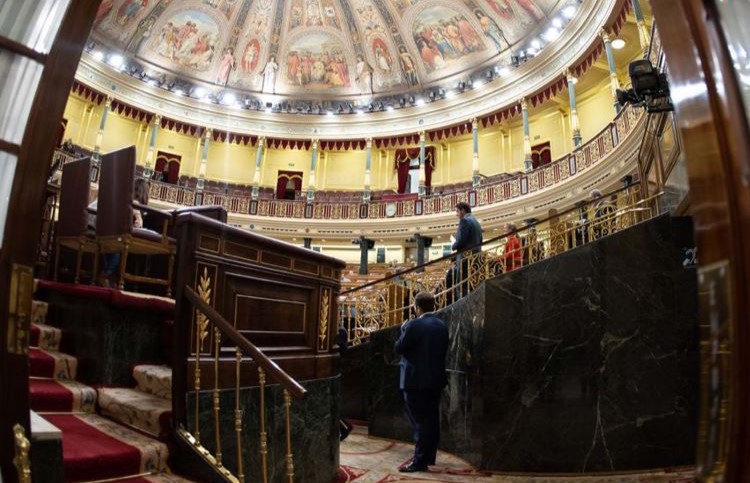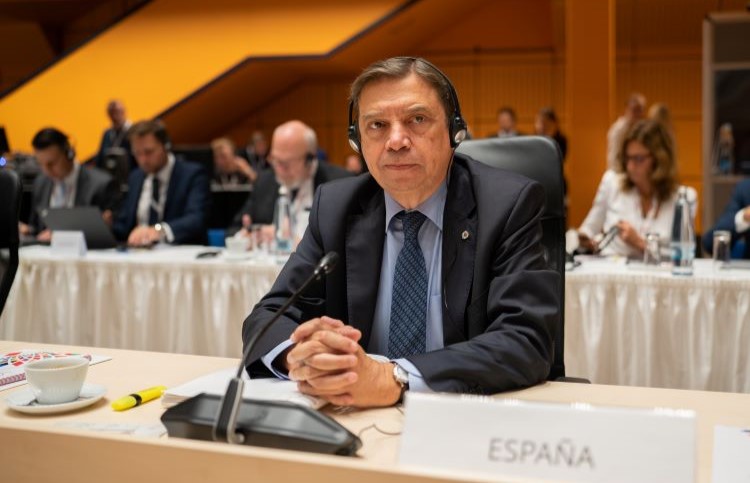The Diplomat
The Congress ratified yesterday the protocols of accession of Sweden and Finland to NATO, after a debate that revealed a new division within the coalition government of Pedro Sánchez.
The entry of the two countries into NATO was agreed at the end of June, during the Alliance’s Summit in Madrid. The permanent representatives of the 30 allies (including Spain) signed the accession protocols of the two countries on July 5 in Brussels, after which they must be ratified by the Parliaments of all NATO member states. With the ratification by the US Congress on August 9, 23 of the 30 countries that currently make up NATO have already done so. In Spain, the accession protocols were sent to the Spanish Parliament at the beginning of August by the urgency procedure and in a single reading, that is to say, with a single debate in the Plenary and without the need to go through the Foreign Affairs Committee.
In the two votes yesterday in the Lower House, the accession of the two Nordic countries obtained 290 votes in favor, 11 against and 47 abstentions (identical result in the two cases), thanks to the favorable vote of the PSOE, Partido Popular, Vox, Ciudadanos, PNV, PDeCat and JxCAT. Unidas Podemos abstained and four MP of Izquierda Unida voted against (as did BNG and CUP). The only exception in this formation was the Minister of Consumer Affairs and federal coordinator of IU, Alberto Garzón, who abstained. ERC, Bildu, Más País and Compromís also chose to abstain.
Both Unidas Podemos and other formations opted for abstention to combine, on the one hand, their rejection of NATO and, on the other, their respect for the sovereignty of the two Nordic countries. “Everyone knows what we think of NATO, but at the same time it is an issue that affects the sovereignty of Finland and Sweden,” said this week the spokesman for Unidas Podemos, Pablo Echenique, to the Efe agency.
During yesterday’s debate in the Lower House, the spokesman for Unidas Podemos in the Foreign Affairs Committee, Gerardo Pisarello, accused the “supposed head of Europe’s diplomacy” (the EU High Representative, Josep Borrell), of not talking about diplomacy “not once” and denounced that “the priority of NATO and the Pentagon is not to allow Europe to have an autonomous security policy” in favor of “a military and economic oligarchy that does not care about the fate of those attacked in Ukraine.” “It is sad that Europe renounces to have an autonomous foreign policy,” he lamented. “We cannot be here, it will not be in our name,” he concluded.
For his part, the Socialist spokesman for Foreign Affairs, Sergio Gutiérrez, denounced the “terrible equidistance” between “aggressors and invaded” and between “those who suffer and cause suffering”, and urged “all members of the House” to remember that “Sweden and Finland seek to defend, not to attack; deter and not to fight”, a desire that Congress has “the moral duty” to support.
On the part of the PP, Pablo Hispán criticized the differences between PSOE and Unidas Podemos. “Podemos has announced that it will not support the entry of Finland and Sweden into NATO, which Sánchez himself had pledged to support. This shows that Sánchez is only president of part of the government,” he said. “Spain is the only government in Europe that is a member of NATO in which one half is in favor of the Alliance and the other half claims that it is a criminal organization,” he added.
This same week, the Minister of Foreign Affairs, José Manuel Albares, played down the importance of the division between PSOE and Unidas Podemos regarding the enlargement of the Alliance and described as “normal” that there are “nuances” within the coalition Government. “Both Sweden and Finland are very grateful for the speed with which Spain is responding to what is not a demand from the Spanish government, but a request from both governments,” he said.







